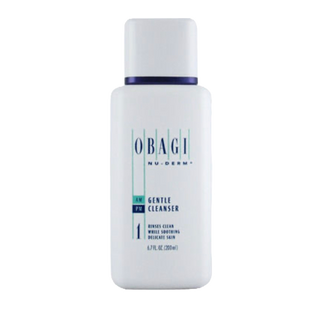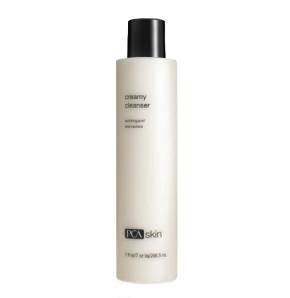LIFE, LOCKDOWN & SKIN - A quick guide to bad habits and what to do about them!
- Helen M
- Mar 25, 2021
- 6 min read
Updated: Mar 26, 2021

As Spring approaches and the news of the lockdown restriction’s easing we are all now looking forward to the sunnier months ahead.
Preparation for that healthy, gorgeous skin just in time for summer begins now!
Lockdown has seen an increase in our time spent indoors, consuming more junk food and alcohol, staring at electronic screens for hours and self-diagnosing and treating our own skincare issues. All of which can negatively impact the overall condition resulting in premature ageing such as lines and wrinkles, Acne breakouts, inflammaging and inflammation etc..
Here we focus on some of the factors that have been damaging our skin during this winter lockdown and what can be done to restore and rejuvenate the skin now for the year ahead.
Inside More / Outside Less
Restrictions told us to stay at home and the winter has made us less likely to venture outside. Colder, inclement weather and increased use of central heating systems during the winter months expose the skin to fluctuations in temperature and air humidity impairing the protective barrier of the skin.
Dry skin often occurs as a result of the skin’s natural oils (sebum) being stripped away, allowing moisture to be drawn from the skin. The skin cells become dehydrated and more sensitive to extrinsic pollutants causing inflammaging / inflammation. As the outer cellular layer of the skin’s barrier (Stratum corneum) shrink and break away from each other, the skin can appear red, dry, cracked and often feels itchy. Pre-existing conditions like eczema and psoriasis are made worse causing greater discomfort and the effects of ageing become accelerated and more visible.
In addition, a reduction in exposure to natural sunlight decreases Vitamin D production in the body. Low levels of Vitamin D are associated with inflammatory skin conditions such as atopic dermatitis and psoriasis; however patchy dryness, redness, dull pallor and outbreaks of spots/pimples are tell-tale signs of reduced Vitamin D. Vitamin D is best produced when the sun's UVB rays are absorbed into the epidermal layers of the skin.
What can you do??
Not having the heating too hot and the use of a humidifier will improve air moisture levels in a room, which in turn will not dry out the skin. Having a hot bath or shower depletes the skin's natural oils (as well as breaks down collagen) and can irritate already dry skin; keeping water at a comfortable temperature and avoid prolonged water exposure. This will allow the skin time to replenish and maintain its protective barrier layer. Always pat skin dry and apply moisturiser immediately after bathing to lock in and retain moisture.
Keep hydrated to replace water loss and prevent dehydration. Increase your intake of skin friendly foods such as oats, avocado, nuts and oily fish to supplement your skin from inside the body. Get outside more to generate Vitamin D production but don't forget your sunscreen!
Use appropriate skin care products
Maintain your skin's pH levels by opting for more gentle, fragrance-free products to prevent or worsen dry, itchy skin.
Cleansing - Using gentle cleansers such as the PCA Skin® Creamy Cleanser or the Obagi Medical® Gentle cleanser will help hydrate the skin whilst keeping it clean.
Toning - Try and avoid toners and astringents containing alcohols that will only dry the skin out. Aim for hydrating toners such as the Obagi Nu-Derm® Toner or the Hydrating Toner from PCA Skin®.
Hydrate - It is important to keep the skin hydrated twice daily, morning and night, with a non-acidic moisturiser to help reinforce the skin's natural barrier such as the Obagi Hydrate or the PCA Skin Silkcoat Balm
Products such as the Obagi Hydrate Luxe ultra strength overnight moisturiser is engineered with biomimetic peptides to deliver lasting moisturisation for tight, dry skin.
Serums- Boost moisture levels by adding a serum to your daily skincare
routine. Hyaluronic Acid holds up to 2000 times its own body weight in water keeping the skin plump, hydrated and with a dewy glow.
The PCA Skin Hyaluronic Acid Boosting Serum is a firm favourite with our clients.
For a wider range of products visit the Asthetik London Skin Care shop and order online here
JUNK FOOD AND ALCOHOL
Our increased stress levels and boredom has played a role in the food and drink we have been consuming. Stress related eating and over indulging on alcohol and salty/sugary foods can cause skin inflammation, dehydration and promotes free radical formation resulting in oxidative stress which accelerates skin ageing.
For example, sugars and refined carbohydrates cause a spike of the hormone insulin which can stimulate sebum production in turn clogging pores and contributing to acne outbreaks. High Glycaemic foods are also responsible for a skin deterioration process called Glycation (where sugar molecules attach to other fats and proteins in the body). Skin proteins collagen and elastin are greatly affected by Glycation, causing structural weakness and reduced function resulting in a loss of volume and elasticity in the skin.
In addition, Alcohol consumption can cause the skin to look discoloured and swollen, as the blood vessels under the skin's surface dilate and increase blood flow to the skin cells producing an inflamed look to your skin’s appearance. The more frequently alcohol is consumed the longer it takes for the redness to subside as the skin becomes more damaged.
Better food and drink choices
Eating a more balanced, healthier diet and drinking more water will help eliminate toxins and replenish the skin cells with nutrients. Cutting down on sugar, salt and alcohol will not only improve our skin's appearance but will help boost the immune system to reduce skin flare ups and break outs and reduce the skin’s ageing process.
Using antioxidant boosters in skincare regime
Products containing antioxidants such as the Obagi Professional- C range will help boost the skins defence by eliminating free radicals and helps protect against the stress and damage caused by oxidation.
Electronic screens and High Energy Visible Light (HEV)

Working from home, zoom calls or binge-watching Netflix has increased our use of electronic devices and is causing damaging effects to our skin.High energy visible light (HEV) or blue light penetrates deep into the skin's hypodermis layer which helps regulate our body’s circadian rhythm upon daylight exposure, as well as boosting memory and cognitive function and helps elevate our mood.
Electronic devices such as televisions, computers and smartphones also emit this blue light. Prolonged exposure to HEV light can cause cellular changes and generate free radicals. Thus, leading to inflammation, sensitivity, pigment changes, collagen and elastin breakdown, ultimately resulting in Melanogenesis, uneven skin tone, textural problems and laxity. HEV skin damage is not immediately visible on the skin surface but like UVA/UVB sun damage the effects are more apparent longer term - think age spots!!
What can you do??
Firstly, Reduce exposure! Using a screen filter, limiting screen time and lowering the brightness on your electronic device or switching to night mode to disable the blue light. Connecting headphones for phone calls and keeping your phone at a distance from your face will reduce HEV penetration to your skin.
Secondly Use a sunscreen!! SPF sunscreens containing a physical barrier like zinc oxide should be used daily to shield the skin from these harmful light emissions and can be combined with antioxidant boosters to strengthen the skins defence barrier. Don’t forget, if you are using devices near a window the sun's UVA and infrared rays can penetrate through glass too! Our sunscreens offer broad spectrum SPF and are suitable for all skin types.

Obagi Sun Shield SPF50 Tint is available in warm and cool tints to match a range of skin tones. This new sunshield is Skin Cancer Foundation approved and offers both a physical and chemical protection for the skin.
Self Diagnosing and treating our own skin care issues.
Lockdown saw skin care clinics temporarily closed and despite many offering online consultations we turned to the Google skin clinic to provide us with guidance (often confusing!).
The skin care Industry is a mine field and is marketed so cleverly with attractive packaging, perfumes and campaigns; that you can be using on average 15-20 different skin care products per week without even realising it!
Most often of these will contain active ingredients, such as Alpha-Hydroxy (AHA), Beta Hydroxy (BHA) and PolyHydroxy Acid’s (PHA), which can be beneficial for resurfacing, brightening and exfoliation, may in fact do the opposite and cause detrimental side effects to the skin if used incorrectly.
What can you do??
Avoid self diagnosing through the million and one various articles and websites out on the web! If you have a concern or issues with your skin, then contact a medically qualified practitioner and get some real advice on what you can do.
Here at Asthetik London we offer skincare consultations, providing you with safe and effective advice bespoke to your skin needs, just Contact Us and a member of the team will get back to you.



































Comments